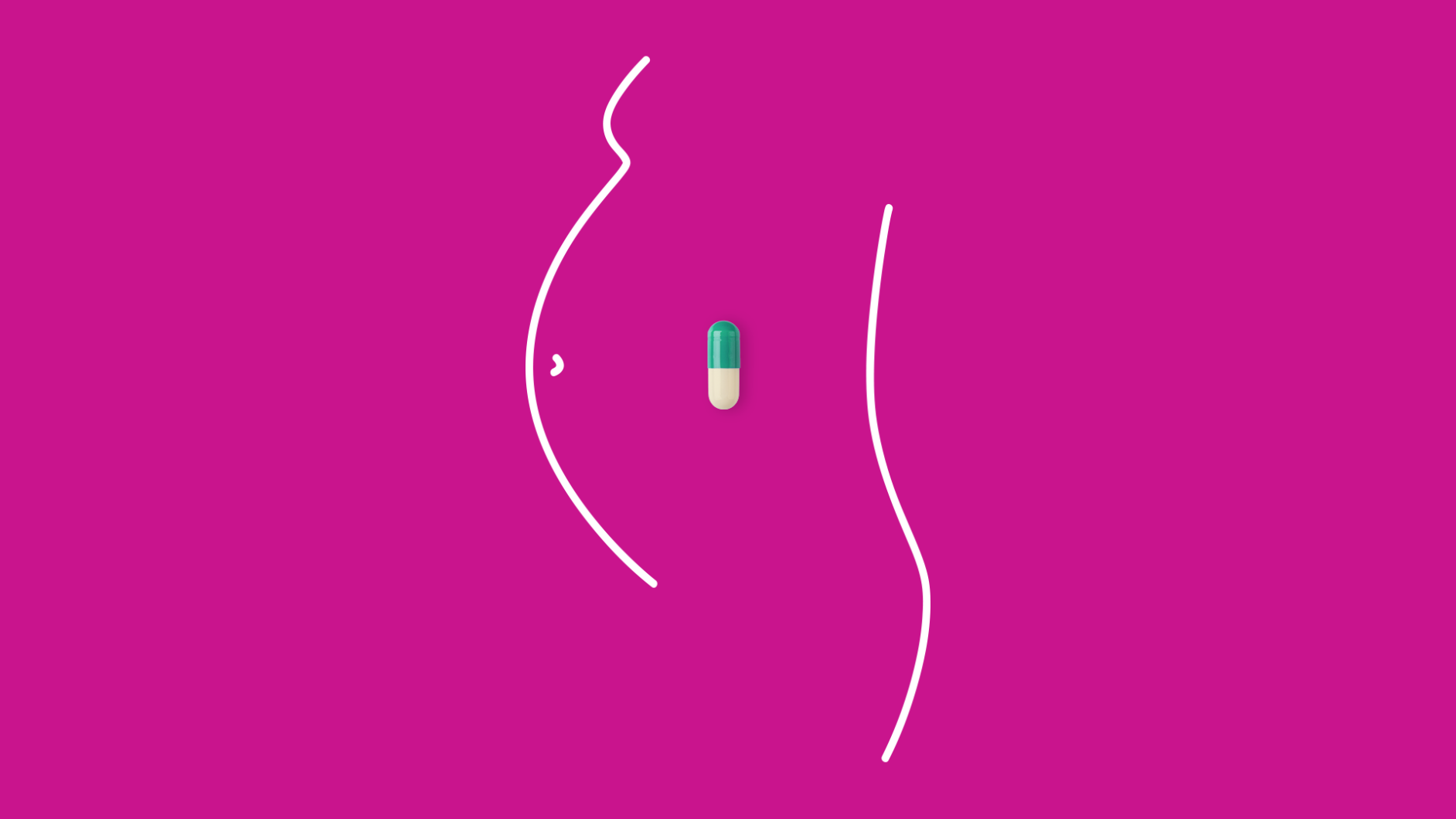A woman who finds out she is having a baby might expect to feel excited, nervous, elated, or slightly stressed during her pregnancy. But most expecting mothers probably don’t anticipate feeling depressed. However, studies show that women who are pregnant are even more vulnerable to depression then when they aren’t pregnant.
The U.S. Preventive Services Task Force (USPSTF) says that 1 in 7 women will experience depression either during pregnancy or in the postpartum period, and that perinatal and postpartum depression are the most common pregnancy and postpartum complications. But is it okay to treat while expecting? Are antidepressants and pregnancy a safe combination?
RELATED: Antidepressants and breastfeeding
What are the symptoms of depression during pregnancy?
Maternal depression looks a lot like clinical depression, says Crystal Clancy, a licensed marriage and family therapist at Iris Mental Health Reproductive Health Services in Minnesota. The difference between perinatal depression and clinical depression is that a pregnant mother often feels shame associated with not feeling the “right” feelings during her pregnancy, Clancy explains.
Signs of depression in pregnancy, according to the American Pregnancy Association, include:
- Feeling persistently sad
- Difficulty concentrating, even on things that typically interest you
- Changes in appetite or sleep
- Thoughts of dying or suicide
If you notice symptoms of depression while pregnant, the first step is seeking help. Don’t let a fear of being prescribed antidepressant medication stop you from getting care. While it’s normal to have hesitations about medication use while pregnant, doctors generally state that the potential risks of not taking antidepressants outweigh the risks of taking them.
Depression treatment during pregnancy
Left untreated, depression can cause serious health risks to a pregnant mother and an unborn baby, including preterm birth and low birth weight, explains Sal Raichbach, Psy.D., a psychologist at Ambrosia Treatment Center in Florida.
Antidepressants and pregnancy
“It is generally safe to treat depression with selective serotonin reuptake inhibitors (SSRIs), such as Celexa [citalopram], Prozac [fluoxetine], and Zoloft [sertraline] during pregnancy,” Dr. Raichbach says. Paxil (paroxetine) is another SSRI that falls into this same class, but it is associated with a small risk of birth defects such as heart defects. Its use is typically discouraged during pregnancy.
The USPSTF conducted a study where pregnant women took the antidepressant sertraline (an SSRI and the generic of Zoloft) and a placebo to treat their depression. The study found that women who took Sertraline had decreased depression recurrence compared to women taking a placebo pill.
“Serotonin-norepinephrine reuptake inhibitors (SNRIs), like Cymbalta, Khedezla, and Effexor are also safe for pregnant women.” Lexapro (escitalopram) is another SNRI in this same class. Research suggests there is an increased risk of postpartum hemorrhage when SNRIs are taken at the end of pregnancy.
Wellbutrin (bupropion) is an additional type of antidepressant that is sometimes also used to help people quit smoking. It’s not a first-choice during pregnancy, but it is a safer option to discuss with your doctor if other antidepressants haven’t worked for you.
Tricyclic antidepressants, such as Pamelor (nortriptyline), are another class of antidepressants considered a third-line option during pregnancy because they are associated with irritability, convulsions, or postpartum hemorrhage.
Therapies for depression
It’s common for women to be afraid to take antidepressants during pregnancy, but it’s important that each patient discusses with their medical care provider which treatment is best for their well-being. For patients who are willing to commit to an alternative treatment plan, there are non-pharmacological options. According to one study, non-pharmacological intervention strategies include (but are not limited to):
- Regular psychotherapy appointments
- Attending a support group
- Cognitive behavioral therapy (CBT), in groups, as an individual, or even in the home
For expecting mothers with severe depression, or mothers who are unable to commit to alternative plans, Clancy says, “It is so important to find someone who has specialized training in prescribing [antidepressants] for pregnant and postpartum patients.”
Side effects of antidepressant use during pregnancy
There is a lot of misinformation out there about what mothers can take while pregnant and breastfeeding. The Anxiety and Depression Association of America says that while there are risks associated with antidepressants and pregnancy, including risks of birth defects, the risks are very low. The potential side effects of prenatal exposure during the third trimester and include:
- Jitteriness
- Irritability
- Poor feeding
- Respiratory distress
- Very small possible risk of autism and ADHD
For women who find out that they are expecting and are already on antidepressants, John Hopkins Medicine advises against the discontinuation of your medication, and recommends that you immediately consult with your healthcare provider. They also suggest that if you have a mood disorder and are considering becoming pregnant, that you consult with a reproductive psychiatrist beforehand.
Dr. Raichbach says that “While risks of taking antidepressants during pregnancy are minimal, doctors will usually prescribe the lowest dose of medication that works to alleviate symptoms. The alternative of untreated depression and anxiety certainly has a negative impact on the development of a fetus.”
It’s best to speak with your obstetrician about the best options for your care. Mental Health America provides resources and assistance for those looking for a mental health professional.
Pregnant women who are prescribed antidepressants during pregnancy are suggested to enroll in the National Pregnancy Registry for Antidepressants (NPRAD) by calling 844-405-6185.











